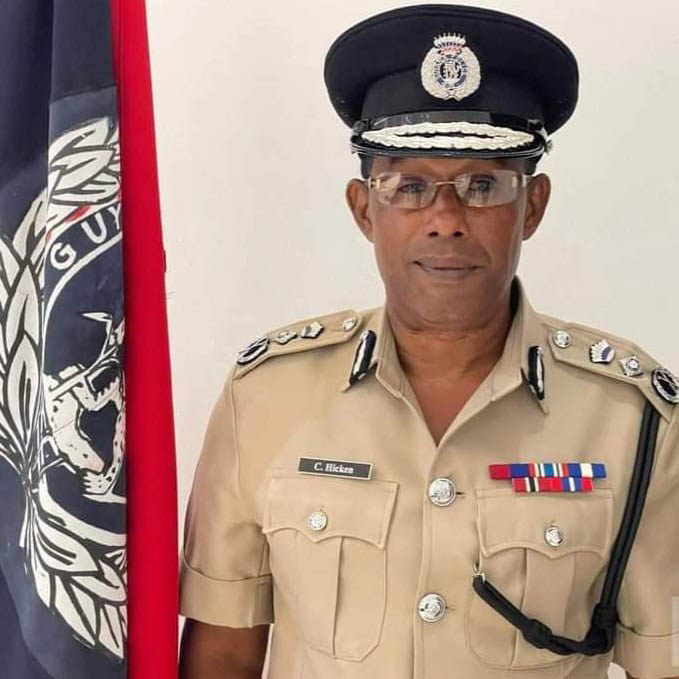While there has been a significant decrease in serious crime, there has been an increase in road fatalities, Police Commissioner Clifton Hicken said recently, adding that the Guyana Police Force’s (GPF) will be rolling out mechanisms in the coming weeks to reduce those numbers.
Speaking at an event to mark the 184th anniversary of the GPF, hicken said there will be rebranding and retooling of policing practices, driven by the 2022-2026 Strategic Plan that is consistent with the manifesto promise under the broader national objective of a safer community. The plan is governed by six pillars: operational priority; partnership; developing people infrastructure; performance; professionalism; and accountability.
Hicken stated that under the pillars there has been some success, as from 2022 there has been an overall reduction in serious crime by 12.6% with the exception of murder which increased by 37%. There has been an increase by 13.3% in the seizure of firearms.
Fatal accidents have increased from 54 in the previous year, to 68 to date. This is expected to be addressed in a holistic way with partners, stakeholder and ministries. Within three weeks, he said, a traffic plan will be rolled out that will include: a focus on education, signs along routes, and enforcement. A symposium will address some of the issues deriving from the officers’ conference.
Police services have been decentralised including passport application and issuance, police clearance, certificate of fitness, sales of firearm and ammunition. The police academy has been registered with the accreditation council, and the occupational health and safety department resuscitated. Further, the GPF has established hinterland committees, district intelligence committees and regional intelligence committees.
Hicken also stated that the GPF training curriculum was redesigned, and building opportunities were provided where ranks benefited from a total of 696 sponsorships and 16 scholarships. He stressed that education is important in the GPF if it is to compete with international established police forces. In tune with this, 3,007 police officers benefited from local courses, 75 from overseas courses, 75 from train-the-trainer programmes and 1,080 from gender-based violence training. The police entrance exam was redesigned since the force was bombarded with complaints about the level of intelligence of the ranks when they interact with members of the public. The exam is now prepared just above the Caribbean Examination Council level.
Over 17 memoranda of agreement were established with leading institutions including Texila University, University of Guyana, Guyana Technical Institute, Institute of Distance and Continuing Education, and School of the Nations. A total of 105 ranks have benefitted from language training in Portuguese, French, Spanish and Mandarin to boost communication with foreigners.
Ten Zara Computer Centres were established in regions Two, Three, Four, Six and Ten where over 1,000 students were trained thus far. These centres are also designed to equip ranks as the force transitions from a paper base to a digitalised system.
Police stations are now equipped with more vehicles to respond to reports and occurrences, Hicken also said.






